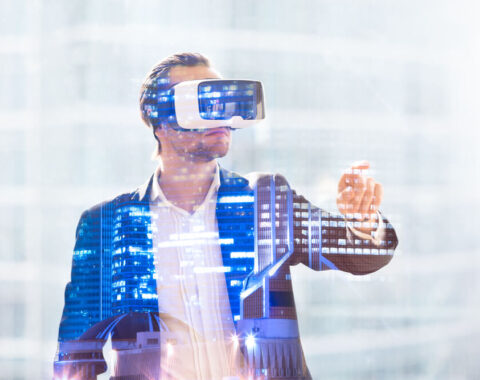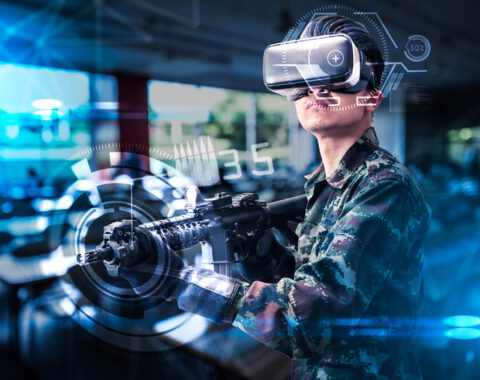Table of Contents:
Despite being relatively new, virtual reality has quickly proven to be a powerful educational tool. VR training is already widely used. Training in empathy and understanding other people’s perspectives is one area where VR can bring great success. Let’s follow the scientific research on this topic to better understand the benefits and effects of such training.
Using Virtual Reality to Discover Empathy
How can VR training help develop empathy and perspective-taking skills? To build positive interpersonal bonds, empathy is inextricably linked to prosocial behavior. Society and individuals function harmoniously when these bonds are present.
Researchers and training participants agree that VR environments are ideal for practicing empathy and taking the perspective of others. “Building long-term empathy: A large-scale comparison of traditional and virtual reality perspective-taking” conducted by scientists at Stanford University in 2018, is an example of documented research on this subject.
Empathy, Perspective-taking, and VR Training
A study describing the results was published in the scientific journal Plos One. It was assumed that empathy and perspective-taking are two key aspects of building understanding and bonds between people that can be strengthened by VR training. Scientists defined empathy as understanding and sharing another’s feelings, while perspective-taking as an ability to see the world from one’s perspective. Based on their prejudices toward homeless people and people of different ethnicities, participants were evaluated on both values.
VR training enhanced participants’ empathy and perspective-taking skills in several ways, according to the study. Those who completed eight weeks of perspective tasks showed more positive attitudes and signed more petitions supporting homeless initiatives than those who only imagined being homeless or completed less involved perspective tasks.
The Perspective of Others in VR Simulations
An additional study, also conducted by Stanford University, shows that virtual reality increases cognitive empathy for others. Based on the research mentioned above, this study concluded that virtual reality experiences can increase prosocial behavior. In a series of games, partners were tested on their ability to adopt the perspective of their partner when faced with normal life situations, such as helping someone with communication issues who has difficulties reading or using a wheelchair. Participants interacted with a partner – a student from the same university – in a registered laboratory experiment.
Experimental results confirmed that VR training increased participants’ subsequent tendency to adopt their partner’s perspective (an aspect of empathy). However, this happened when the partner was the same person whose perspective the participants took in the virtual reality simulation. This confirms the theory that VR can enhance the ability to take a goal-specific perspective.
VR and Everyday Challenges: Benefits
Studies on the development of empathy skills and taking the perspective of others using VR strongly confirm the benefits of VR. According to researchers, VR training offers participants the following benefits:
- Increasing empathy and perspective-taking skills;
- Improving communication and cooperation;
- Developing new strategies for resolving conflict.
VR can also be used in training aimed at developing empathy in an extremely wide variety of ways. Among them are:
- Simulations: Users can experience different situations from the perspective of different people, e.g. a homeless person, a refugee or a disabled person.
- Interactive games: VR games can teach cooperation and bonding between people from different backgrounds.
- Stories: VR can be used to tell stories from different perspectives, which can help users develop empathy for different social groups.
VR offers enormous possibilities for increasing empathy and learning to take a different perspective. As a society, we can be optimistic about reducing prejudice and promoting appropriate social attitudes as technology advances.








